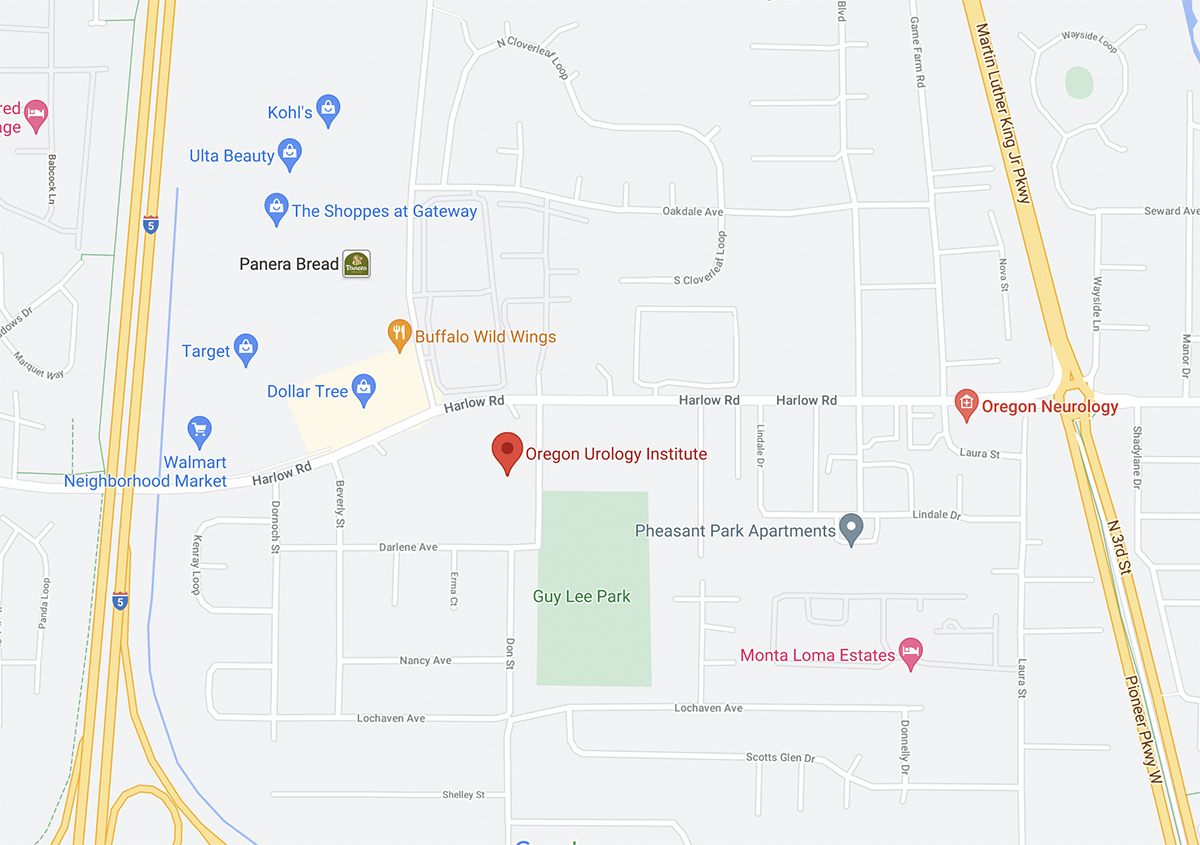NEUROGENIC BLADDER

WHAT IS A NEUROGENIC BLADDER?
The bladder is an essential part of the urinary system. It stores urine until it is full, and when all is working normally, it allows you to control when to empty it. As your bladder fills, it sends signals to your brain through the nervous system, letting you know when it’s time to urinate. When you decide to urinate, the brain sends signals to your bladder. It then contracts and releases urine through the urethra. This smooth communication is what allows you to control your bladder. Sometimes, this communication becomes impaired, and the bladder no longer functions properly.


WHAT DOES NEUROGENIC MEAN?
Neurogenic refers to a problem that originates in the nervous system.
When you have a neurogenic bladder, there’s been a disruption in the signals between your brain, spinal cord, and bladder. This miscommunication can make your bladder:
- Overactive, contracting too much
- Underactive, meaning it doesn’t empty as it should
CAUSES OF NEUROGENIC BLADDER
Bladder nerve dysfunction can occur for several reasons. Many are linked to neurological conditions or injuries that disrupt nerve function:
- Damage to the spinal cord can impair the brain’s ability to control the bladder.
- Multiple sclerosis (MS) is a condition that affects the nerves and disrupts the body’s communication with the bladder.
- Stroke can cause damage to areas of the brain involved in bladder control.
- Parkinson’s disease is a degenerative nerve disease that often interferes with normal bladder function.
- Over time, uncontrolled blood sugar levels from diabetes can lead to nerve damage.
- Congenital conditions can also affect bladder function from birth, including:
- Spina bifida- an incomplete formation of the spine
- Sacral agenesis- missing parts of the spine
SYMPTOMS OF NEUROGENIC BLADDER
Living with symptoms can be challenging as many people feel frustrated or even embarrassed by their unpredictable nature. Common symptoms include:
- Frequent urination or going to the bathroom more than eight times a day
- Urgency, which is a strong, sudden urge to urinate
- Involuntary loss of urine or leakage which can happen during physical activity or even while at rest
- Struggling to start or completely empty your bladder
- Urinary pain, which can sometimes indicate an infection or inflammation
DIAGNOSING NEUROGENIC BLADDER
Many tests are available to help your doctor assess your bladder function. They can also help identify the cause of neurogenic bladder symptoms.
Urodynamic studies
This set of tests measures various aspects of bladder function, such as:
- How much urine the bladder can hold
- The pressure inside the bladder
- How well the bladder empties
Small sensors are sometimes used to check nerve and muscle function of the urethra and rectum. This helps provide a complete picture of bladder control.
Cystoscopy
In this procedure, a small, flexible tube with a camera is inserted into the bladder through the urethra. The camera allows your doctor to see the inside of the bladder and urethra to check for any abnormalities.
Imaging Tests
Ultrasound, MRI, or a CT scan helps visualize the bladder, kidneys, and surrounding structures. Ultrasound is often used for a quick assessment, while MRI or CT scans may provide a more detailed view of structural issues.
TREATMENT OPTIONS
Managing neurogenic bladder often involves a combination of approaches.
- Diet and lifestyle adjustments. Some foods and drinks, like caffeine, alcohol, and acidic foods, can irritate your bladder. Making changes in your diet and staying hydrated can help ease symptoms. If diabetes is a factor, keeping blood sugar levels in check can help. Managing constipation through diet may relieve pressure on the bladder.
- Bladder retraining and scheduled voiding. In some cases, gradually retraining the bladder to hold urine longer can help increase control. Scheduled voiding, where you follow a set bathroom schedule, is another way to manage bladder function.
- Intermittent catheterization. For those who struggle to fully empty their bladder, a thin tube called a catheter can be used. You or a caregiver can insert this into the urethra periodically throughout the day to help drain urine.
- Continuous catheterization. If intermittent catheterization is not an option, a catheter may be left in place to drain urine regularly. This is often used for people with severe symptoms and can be done through the urethra or a small opening in the lower abdomen.
- Medications. Medicines are available that help relax the bladder muscles, reducing urgency and frequency. Others may help to stimulate bladder contraction if it’s underactive. Your doctor will prescribe the best medication based on your symptoms.
- Botox injections. Small injections of botulinum toxin into the bladder can reduce muscle spasms and calm an overactive bladder. This procedure is often done every few months and can improve comfort.
- Neuromodulation therapies. Devices like Axonics stimulate the sacral or tibial nerves. This resets the nerves, improving bladder control and reducing overactive bladder symptoms.
- Surgery. If other treatments aren’t effective, surgical options like bladder augmentation or creating a new pathway for urine may be an option.
COMPLICATIONS OF NEUROGENIC BLADDER
When left unmanaged, neurogenic bladder can lead to various complications that may affect both urinary and kidney health.
The inability to fully empty the bladder can lead to stagnant urine, allowing bacteria to grow. This increases the risk of urinary tract infections, which may cause pain, fever, and a burning sensation during urination.
When urine remains in the bladder for too long, minerals in the urine can form crystals, which may then develop into bladder stones. These stones can cause pain, infections, and sometimes blockages in the urinary tract.
In severe cases, neurogenic bladder can lead to increased bladder pressure. Over time, this can affect kidney function and increase the risk of kidney infections or even failure if untreated.
If you’re dealing with symptoms of neurogenic bladder, make an appointment with a urologist. A urologist specializes in urinary system disorders and can help identify the root cause of your symptoms.
FAQs
Can neurogenic bladder be managed long-term without surgery?
Yes, many people manage neurogenic bladder effectively through lifestyle changes, medications, and intermittent catheterization. Surgery is generally considered only if these methods are insufficient.
Is it possible to self-catheterize at home?
Yes. With proper guidance from your doctor, most people learn to perform self-catheterization safely and comfortably at home.
Will neurogenic bladder symptoms worsen over time?
The progression depends on the underlying condition. Regular check-ins with your urologist can help monitor changes and adjust treatment as needed.






